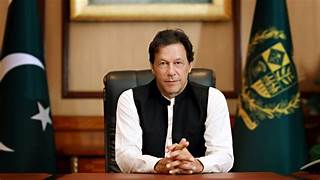
Introduction:
In recent years, Imran Khan has emerged as a prominent figure in Pakistani politics. From being a celebrated cricketer to becoming the 22nd Prime Minister of Pakistan, his journey has been nothing short of remarkable. However, as with any political leader, Imran Khan’s current situation is subject to scrutiny and analysis. In this blog post, we will delve into the key aspects of Imran Khan’s current situation, exploring his achievements, challenges, and the road ahead.
Imran Khan’s Achievements:
Since assuming office in August 2018, Imran Khan’s government has implemented several reforms and initiatives. One of the notable achievements is the introduction of the Ehsaas program, a social welfare initiative aimed at reducing poverty and inequality. Under this program, various measures have been taken to provide financial assistance, healthcare, and education to marginalized communities. Additionally, the government has prioritized the construction of dams to address the water crisis in the country.
Challenges and Criticisms:
Despite the accomplishments, Imran Khan’s tenure has not been without challenges and criticisms. One of the major concerns is the economic situation of Pakistan. The country faces a staggering debt burden, high inflation, and a widening fiscal deficit. Critics argue that the government’s economic policies have failed to provide relief to the common people. Furthermore, there have been allegations of media censorship and curtailment of freedom of expression, raising concerns about press freedom in the country.
Foreign Relations and Geostrategic Challenges:
Imran Khan’s government has made efforts to strengthen Pakistan’s ties with other countries, especially in the context of regional security and economic cooperation. The prime minister played a pivotal role in facilitating dialogue between the United States and the Afghan Taliban, aiming to bring stability to the war-torn region. However, the geopolitical challenges faced by Pakistan, such as the Kashmir issue and strained relations with India, have posed significant hurdles to regional peace and stability.
The Road Ahead:
As Imran Khan navigates through the complexities of governance, it is crucial to assess the way forward. Economic stability, poverty alleviation, and social reforms remain key priorities for the government. It is essential for the administration to implement effective policies that address the concerns of the public and ensure inclusive growth. Moreover, fostering a conducive environment for democracy, freedom of speech, and human rights will be vital in shaping a progressive future for Pakistan.
Conclusion:
Imran Khan’s current situation reflects a mix of achievements, challenges, and opportunities. While he has taken significant steps towards reform and development, there are areas that require attention and improvement. The journey of an ex-prime minister is never easy, and Imran Khan’s leadership continues to be tested in the face of various difficulties. As Pakistan moves forward, it is essential for the nation to collectively work towards a prosperous and inclusive future under the guidance of its leaders.






